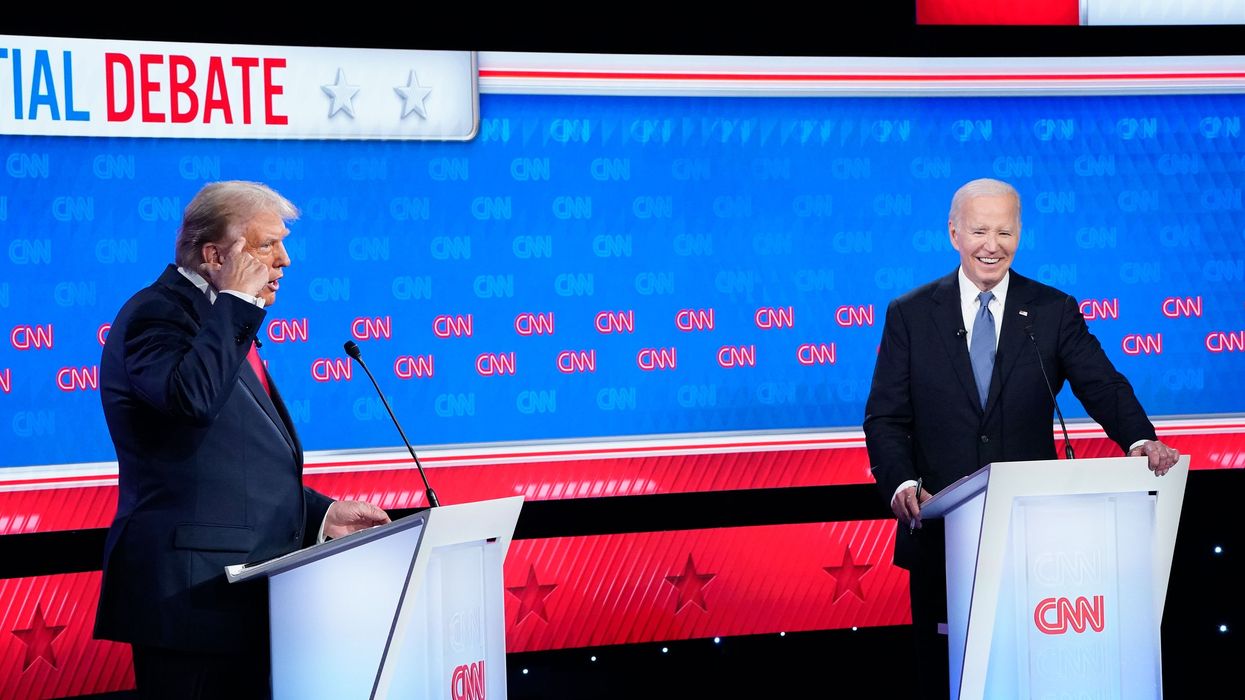Anderson edited "Leveraging: A Political, Economic and Societal Framework," has taught at five universities and ran for the Democratic nomination for a Maryland congressional seat in 2016.
About 25 years ago, the noted political scientist and sociologist Seymour Martin Lipset invited me to lunch at the Woodrow Wilson Center for International Scholars in Washington, D.C. I was a young academic teaching various courses in ethics and political philosophy at George Washington University. He asked me: "What do you think is the most important quality a person needs to be president?"
I thought for about 30 seconds and replied, "Give a great speech."
He said, "No, schmooze."
We discussed schmoozing at some length. Schmoozing, we agreed, had a great deal to do with building relationships with members of one’s own party and the opposition party, advocacy, building support, negotiation, and leadership. It was a private act, not one you could see on television or, today, on your phone.
One thing we did not discuss was the ability to perform well in debates. The truth is that apart from presidential debates, American presidents do not have to debate anyone, privately or publicly.
When, while in office, does an American president have to debate anyone? Does the president debate with members of Congress in a formal setting? Does the president debate with members of Congress in the Oval Office? Does the president debate with his Cabinet or ambassadors or foreign leaders?
The president, of course, must engage in arguments with others, even heated arguments. He must negotiate, listen and persuade. At one extreme, one thinks of Lyndon Johnson physically, politically and psychologically dominating members of Congress in order to win their support on a bill. “The Johnson treatment” is the antithesis of schmoozing, but it is not debating either.
Whether a presidential candidate is a good or even fine debater actually tells us very little about whether he or she would be a good or even fine president. We do see certain skills in action, including the ability to just speak to the audience for a minute or two and think on your feet, if your staff did not prepare you for a question or attack. We do learn something about a candidate's knowledge of a range of topics, although most viewers are not very educated about many of the issues being debated.
At bottom, the debates are not really debates, certainly when there are five or 10 people on the stage. When it gets down to two, we do learn more. But it is still worth emphasizing that one person's ability to win a debate at most demonstrates skills that are, for the most part, not among the chief skills a president must use while in office.
The Lipset axiom — that schmoozing is the most important quality a president must possess — is of course never tested in a debate. This, in itself, is revealing, since it means that, at least in Lipset's opinion, the most important presidential skill is not open to evaluation during a presidential debate.
The recent debate between Donald Trump and Joe Biden did present the viewer with some things worth seeing, notably how Trump is energetic but much of what he says is a gross exaggeration or a lie. It also showed how Biden, who has a stutter and had a cold going into the debate and, he said, suffered from “jet lag” from various foreign and domestic trips prior to the debate, is still able to make many good points of fact and moral points over the course of 90 minutes.
The presidential debates, which are designed to be available to all Americans after work, are nevertheless biased against many, especially those over 70, who are not at their best between 9 pm and 10:30 pm. Most presidents are in the family quarters at the White House between those hours, either sitting or lying down.
The entire presidential debate format is terrible. It is at the wrong time, it demonstrates the wrong skills and it gives the media an opportunity to blow things out of proportion. It may be time to put these debates to rest or else to have the Commission on Presidential Debates continue to make changes in the format. Some of the recent changes made for the CNN debate were good, notably turning off the microphones when a candidate's time is up. If there is a second debate, at the very least it should be held earlier in the evening or on a Sunday afternoon.




















 From left to right: Gabriel Cardona-Fox, Bud Branch, Joe Concienne
From left to right: Gabriel Cardona-Fox, Bud Branch, Joe Concienne 